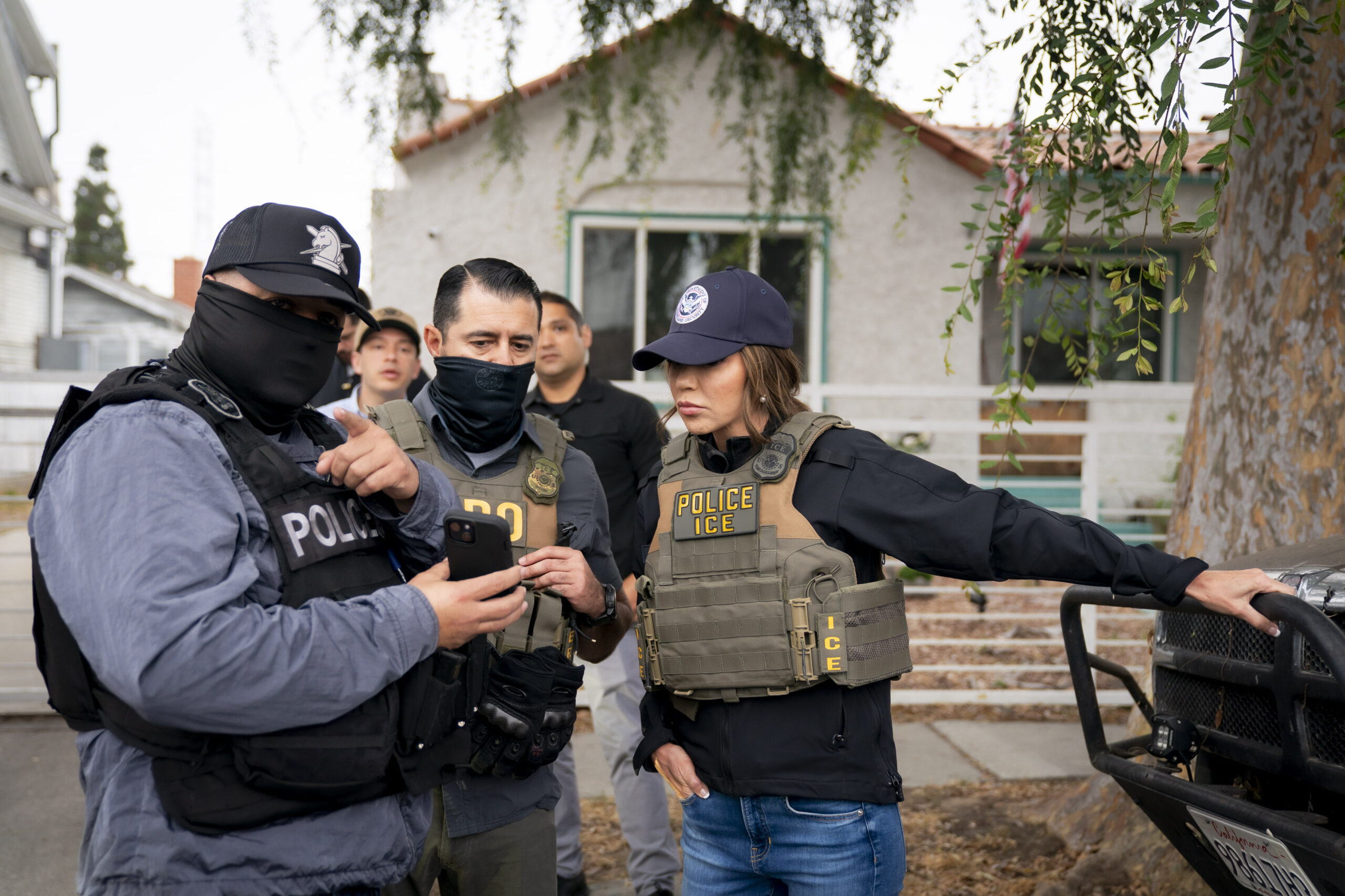
American Oversight Sues DHS for Texts from Noem, Other Officials on Host of Administration’s Most Controversial Actions
We’re seeking records surrounding controversial Trump administration decisions — including inhumane immigration crackdowns, military deployments, and federal abuse of power.

Tuesday, American Oversight sued the U.S. Department of Homeland Security (DHS) and the Federal Emergency Management Agency (FEMA) for failing to release text messages and other communications from Secretary Kristi Noem and other senior officials related to some of the Trump administration’s most controversial actions.
The lawsuit seeks records that could shed light on DHS’s role in decisions ranging from military strikes and National Guard deployments in American cities to inhumane immigration enforcement and the upheaval of government operations under the Department of Government Efficiency (DOGE).
“The decisions made inside DHS impact real people every day — they determine whether families are separated, whether people are detained or deported, how federal forces are deployed on American streets and abroad, and whether the law is applied fairly and humanely,” said Chioma Chukwu, Executive Director of American Oversight. “For months, DHS and FEMA have withheld messages that could reveal what really happened behind closed doors — including how senior officials communicated about some of the most controversial and consequential actions of the Trump administration. These are not minor administrative details; they go to the heart of accountability and transparency as well as the public’s right to know how decisions are made in one of the nation’s most powerful agencies.”
In late August, DHS informed us that it could no longer search for text messages belonging to Noem and other senior DHS officials — and that text messages created since April were “no longer maintained.” DHS has since acknowledged these statements were erroneous.
We filed a series of FOIA requests between May and August. Those requests — and the topics they cover — form the basis of today’s lawsuit. DHS and FEMA have acknowledged receipt of these and other FOIA requests but have failed to produce any responsive records or adequate explanations for their withholding — prompting today’s lawsuit.
Philip Hegseth Ethics and Military Strikes in Yemen: The May 1 FOIA request sought external email communications, calendars, text messages, Signal communications, and ethics and conflict-of-interest documents from DHS adviser Philip Hegseth — the younger brother of Defense Secretary Pete Hegseth — and other senior officials. The request covered both discussions of U.S. military operations in Yemen, where DHS appointees reportedly used nonsecure Signal chats about airstrikes, and materials reflecting Philip Hegseth’s potential conflicts of interest stemming from his familial connection to the defense secretary. The records could reveal how senior DHS officials handled national security matters and whether personal or political connections influenced official decisions.
Civil Society Agency Communications Request: The May 16 FOIA sought all communications, including emails, text messages, and encrypted messages, between senior DHS officials and the White House regarding civil society groups after media reports indicated the Trump administration could soon target such entities for failing to align with its political agenda. DHS transferred the portion of the request covering two FEMA officials to FEMA for separate processing. These communications could reveal how DHS leadership coordinated with the White House on efforts to weaponize the federal government against its perceived political enemies in the civil society space.
National Guard Deployment in Los Angeles: One June 10 FOIA request sought emails and text messages from top DHS officials — including Secretary Noem, Deputy Secretary Troy Edgar, and Special Government Employee Corey Lewandowski — and local and state officials in California regarding the deployment of the National Guard in Los Angeles following protests of Immigration and Customs Enforcement operations. Another June 10 request on the same subject sought communications containing key terms. The records could reveal the circumstances in which federal resources were mobilized in response to domestic demonstrations, and whether DHS officials coordinated politically motivated actions outside their lawful authority.
Department of Government Efficiency: The June 17 FIA request sought communications among DHS officials, DOGE team leads including Steven Davis, and other DOGE employees and affiliates. The request seeks to determine how DOGE reshaped DHS operations, reassigned career staff, and influenced policy decisions. Understanding these communications is key to uncovering whether the initiative was used to advance political goals rather than improve government efficiency.
Third-Country Removals to South Sudan: The August 12 FOIA request sought communications from nine senior DHS officials regarding immigrant removals to South Sudan, including any correspondence with the White House. The records could clarify who authorized the deportations and whether DHS officials ignored warnings about human rights abuses and court orders designed to prevent unlawful removals.